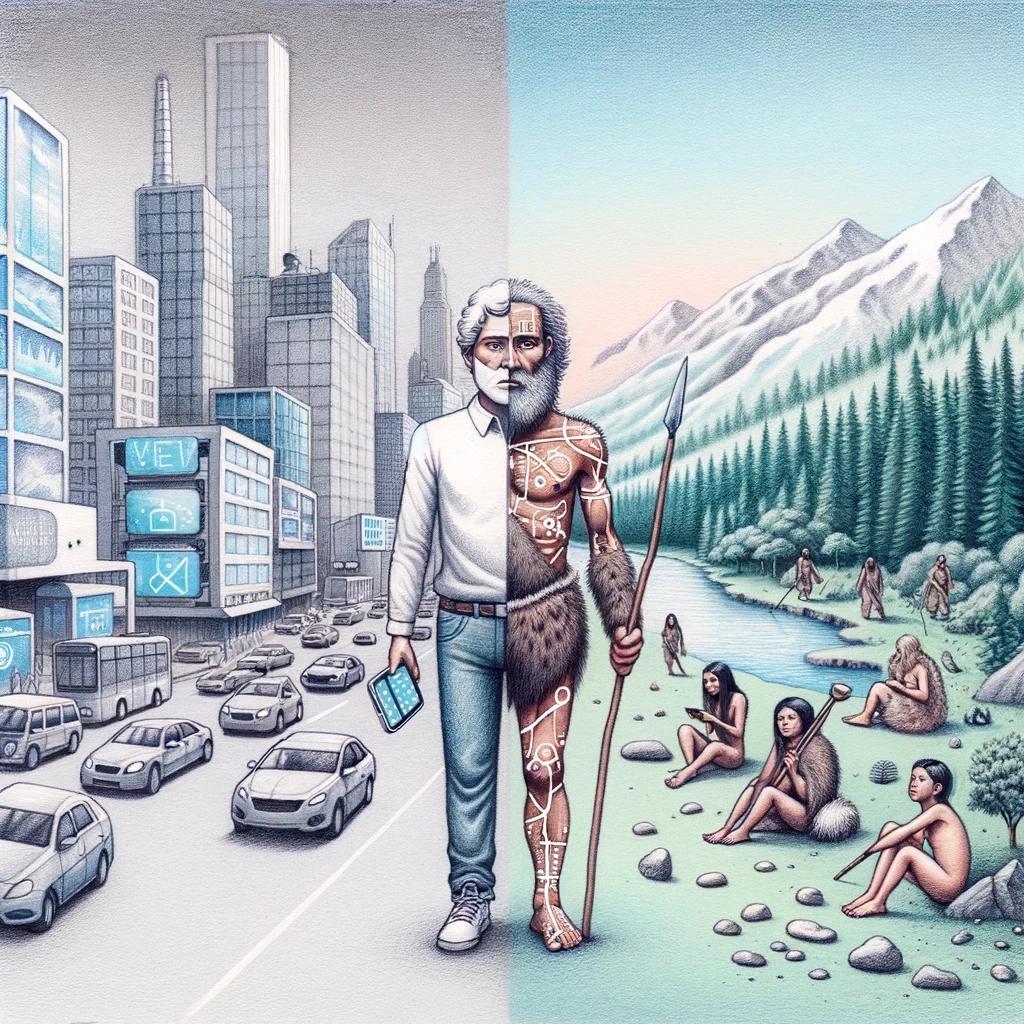Brain Meets World.
Modern life presents unique challenges for our 200,000-year-old brains.
Our minds, evolved for a hunter-gatherer lifestyle, must now navigate a world of technological advancements, information overload, and rapid societal changes.
It is strange to consider that in many countries, even the poorest of households are innumerably richer than past generations. They have internet, TV, indoor plumbing with clean water, and more. And yet, dissatisfaction is at an all time high.
 The root of most of life's problems lies in the mismatch between our ancient brains and the modern world we inhabit. Our brains are wired for survival in a world that no longer exists, leading to cognitive biases, emotional struggles, and maladaptive behaviors that can hinder our well-being and success.
The root of most of life's problems lies in the mismatch between our ancient brains and the modern world we inhabit. Our brains are wired for survival in a world that no longer exists, leading to cognitive biases, emotional struggles, and maladaptive behaviors that can hinder our well-being and success.
The fundamental mismatch between our ancient brain wiring and today’s environment can lead to several significant issues:
- Stress and Anxiety: Our brains are designed to respond to immediate threats with a fight-or-flight response, which was essential for survival in the wilderness. In the modern world, this response can be constantly triggered by non-life-threatening situations like traffic jams, work pressures, and social conflicts, leading to chronic stress and anxiety.
- Decision Fatigue: In a world where our ancestors made relatively few high-stakes decisions, modern humans are bombarded with choices ranging from the mundane to the complex. This constant decision-making can lead to decision fatigue, where the quality of our decisions deteriorates over time.
- Social Comparisons: Our brains have a built-in mechanism to gauge our status within a tribe, which was once small and stable. With social media and mass communication, we are now comparing ourselves to countless others, often leading to feelings of inadequacy, jealousy, and dissatisfaction.
- This mismatch between our evolved preferences and the modern food environment exacerbates health issues like obesity and diabetes.
- Overconsumption: Our brains are hardwired to seek calorie-dense foods, which were once sparse and crucial for survival. In today's world, these foods are abundant and readily available, leading to overeating and habitual consumption. These behaviors are exacerbated by a consumer culture that exploits these tendencies, contributing lifestyle diseases such as obesity and heart disease.
- Information Overload: Our hunter-gatherer ancestors dealt with much less information, which allowed them to focus intensely on the tasks at hand. Today, the constant barrage of digital information can overwhelm our processing capacity, leading to distraction and reduced productivity.
Understanding these problems through the lens of evolutionary psychology not only clarifies why they occur but also helps in developing effective strategies to mitigate them. Guide2Life offers tools and approaches to retrain our brains to better cope with the demands of modern life, promoting mental and physical well-being despite these inherent mismatches.